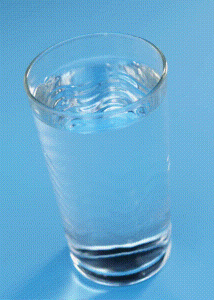 Here in the Puget Sound area we are surrounded by water..and have no shortage of rain. BUT…are you drinking enough water to optimize your health (and athletic performance)? How much IS enough?
Here in the Puget Sound area we are surrounded by water..and have no shortage of rain. BUT…are you drinking enough water to optimize your health (and athletic performance)? How much IS enough?
The standard recommendation has always been to consume at least eight 8-ounce glasses of water each day (or 64 oz./day). The truth is that no one can really tell us where that recommendation came from, but experts agree that it’s a good place to start. More specific recommendations are based on daily energy expenditure. This is because the body must enough urine each day to carry waste products created by metabolic activity. In other words, the more energy we burn, the more metabolic waste we create that needs to be carted out of our system to prevent toxic effects. Based on this, a person who expends about 2000 Calories in a day needs about 8-12 cups (2 to 3 Liters) of water per day. Active people who burn more calories in a day have a higher water need simply because they are burning through more fuel and thus creating more metabolic waste.. Add to this the need to replace water lost in sweat and respiration, and the hydration needs for athletes go even higher.
The human body is about 60% water by weight (or higher if your muscle mass to fat ratio is above average). In addition to it’s role in removing wastes/toxins from our body, water has several other critical functions. It is a necessary component for MANY biochemical and metabolic reactions, acts as a solvent for transporting nutrients, lubricates and cushions the joints, and is highly involved in regulating blood pressure and body temperature. A previous post provides more information on the importance of fluid and electrolyte balance.
The older we get, the less accurate our thirst mechanism works. As children we have a fairly good sense of when we need to drink to stay hydrated. As adults, if we wait until we are thirsty to drink we are already at least somewhat dehydrated. Elderly people have a significantly delayed thirst mechanism, so are often dehydrated without realizing it. This is why they are generally more vulnerable during heat waves. The good news is that it’s not that difficult to stay well-hydrated if we just pay attention and set daily goals.
So…Nutrition Challenge #2 is to drink at least 64 ounces of water each day (plus 12 -16 oz per hour of exercise). Though other beverages (milk, juice, soda, etc.) can technically count towards fluid intake, it’s best if water accounts for the majority of daily fluids.
- Alcohol is a diuretic, which makes it more dehydrating than hydrating – so it doesn’t count towards your daily fluid intake.
- Caffeine in HIGH doses (such as in “energy drinks”) is also a diuretic. However the amount typically found in a cup of coffee or tea is NOT enough to make a difference. So.. you may count coffee, tea, or iced tea as part of your daily fluid intake, but you may NOT count “energy drinks” such as Red Bull or Rock Star.
- Sports drinks are well balanced with electrolytes and can be counted toward your daily total.
- Non-caloric beverages (flavored water, crystal light, etc.) may also be counted toward your daily water goal.
- Did you know that often people will subconsciously eat when they’re thirsty? So staying well-hydrated may help keep you from mindlessly over-eating.
- Keep a water bottle (or coffee mug full of water) nearby throughout the day to make it more convenient to drink water.
- Check back during the week for more tips!

